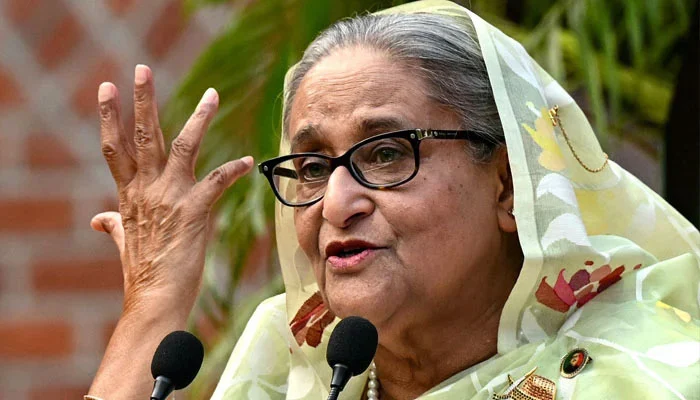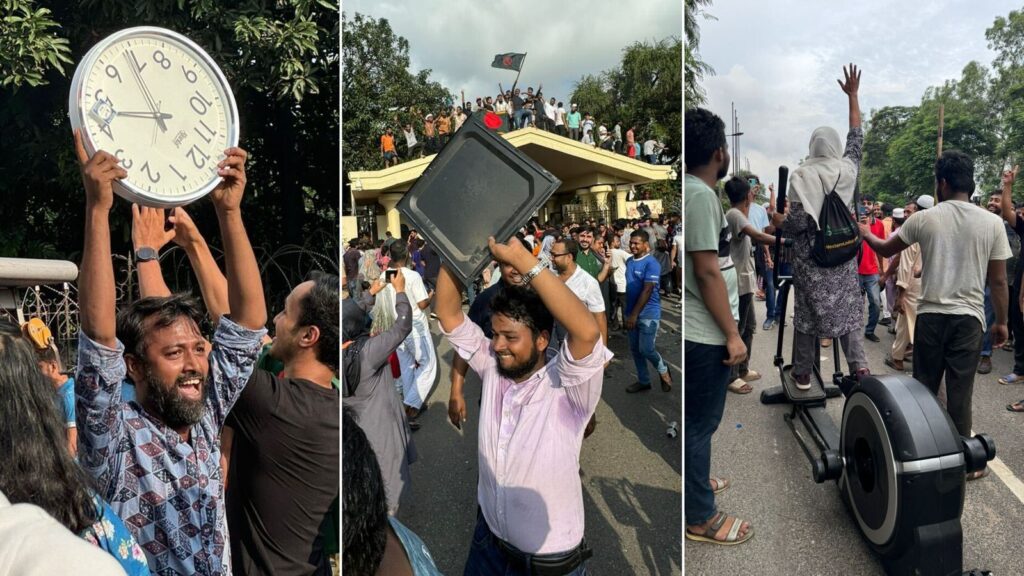New Delhi, India – In a surprising revelation, Sheikh Hasina, the long-time Prime Minister of Bangladesh, did not officially resign before fleeing to India this week amid a severe political crisis. Her son and political adviser, Sajeeb Wazed, disclosed the details in an interview with Reuters on Saturday, shedding light on the chaotic events that led to Hasina’s sudden departure from the country.

Sheikh Hasina has been taking refuge in New Delhi since Monday, following a violent uprising that erupted in Bangladesh, claiming the lives of over 300 people, many of whom were students. The unrest marked the end of Hasina’s uninterrupted 15-year tenure as the leader of the South Asian nation, which has a population of 170 million.
“My mother never officially resigned. She didn’t get the time,” said Sajeeb Wazed, speaking from Washington, D.C. He described the situation as one of extreme urgency, where planned actions were derailed by the escalating crisis. “She had planned to make a statement and submit her resignation. But then the protesters started marching on the prime minister’s residence. And there was no time. My mother wasn’t even packed. As far as the constitution goes, she is still the prime minister of Bangladesh.”
The political turmoil in Bangladesh reached a critical point when the president dissolved the parliament after consultations with military chiefs and opposition leaders. However, the legality of forming a caretaker government without the prime minister’s formal resignation is now a matter of significant controversy. Wazed emphasized that such a formation “can be challenged in court,” implying that the current political transition in Bangladesh might face legal hurdles.

Wazed also made it clear that the Awami League, the political party led by Sheikh Hasina, intends to contest the upcoming elections, which are expected to be held within three months. “I am confident the Awami League will come to power. If not, we will be the opposition. Either way is fine,” Wazed asserted, indicating the party’s determination to remain a central force in Bangladeshi politics.
This statement from Hasina’s son aligns with the recent comments made by Khaleda Zia, the leader of the opposition Bangladesh Nationalist Party (BNP). Zia, a long-time rival of Hasina, has called for unity rather than retribution in the wake of Hasina’s departure. “I’m encouraged by what I hear. Khaleda Zia’s statement that let bygones be bygones was good,” Wazed said. “Let’s forget the past. Let us not pursue the politics of revenge and vengeance. We have to work together, whether it’s a unity government or something else.”
The situation in Bangladesh remains tense as the country navigates this unexpected power vacuum. Sheikh Hasina’s sudden flight and the unclear status of her resignation have left a significant impact on the nation’s political landscape. How the legal and political challenges unfold in the coming weeks will determine the future of governance in Bangladesh.
AP Report



